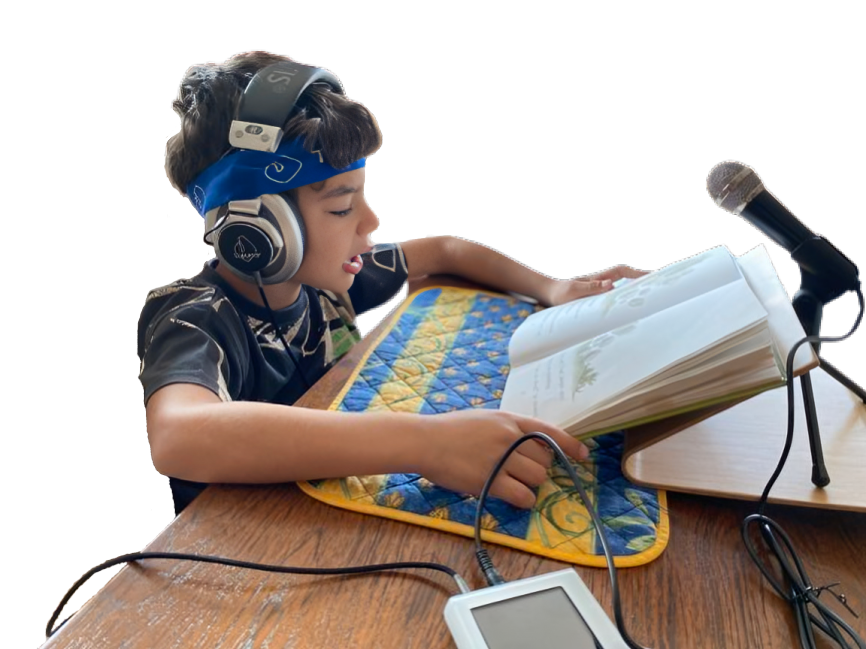Areas Of Application

How Can the Tomatis® Method Improve Your Life?
Children, teens, and adults may suffer from various difficulties linked to auditory system disorders.
Auditory Processing Disorder
Auditory Processing Disorder (APD) is a condition where the brain struggles to accurately process and interpret sounds, even though hearing is normal. This makes it difficult for individuals to filter out background noise and focus on important sounds, such as following conversations in noisy environments.
As a result, children with APD may experience delays in speech and language development, finding it challenging to articulate words, expand their vocabulary, or comprehend spoken language. These difficulties can lead to academic struggles since understanding verbal information is crucial for learning. Additionally, the frustration of not being able to process sounds effectively can impact emotional regulation, leading to anxiety, frustration, and behavioural issues.
Children may withdraw from social situations or have emotional outbursts as they cope with these challenges. APD affects communication, learning, and social interactions, making early identification and support essential.
Autism Spectrum Disorder
Autism Spectrum Disorder (ASD) is a developmental condition that affects social interaction, communication, and behavior. Individuals with ASD often struggle to understand social cues, making it challenging to form connections and engage in typical social activities.
Communication difficulties are common, including delayed speech development and challenges with understanding and using language. Some may rely on nonverbal communication or have trouble with conversational flow.
Behaviorally, ASD may manifest as repetitive actions, intense focus on specific interests, or difficulty adapting to changes in routine. Emotional regulation is also challenging, leading to behaviors like aggression, meltdowns, or tantrums, often triggered by sensory overload or frustration.
These behaviors can be a response to the difficulties they experience in expressing their needs or coping with their environment. Understanding and support are crucial to help individuals with ASD navigate these challenges and improve their quality of life.
Global Developmental Delay
Global Developmental Delay (GDD) causes significant delays in multiple areas of a child’s development, particularly in communication, motor, and social skills. Children with GDD often struggle with speech and language development, making it difficult to express needs, follow instructions, or engage in conversations. Motor skills, including fine and gross motor abilities, are also commonly affected, leading to challenges with coordination, balance, and performing everyday tasks.
The inner ear’s vestibular system, which aids balance and motor coordination, plays a crucial role in these challenges. Dysfunction in this system can make physical activities, like walking and running, more difficult.
Additionally, the cochlea, responsible for processing sound, is vital for sound discrimination and communication. If the cochlea’s function is impaired, it can affect the child’s ability to understand spoken language, further impacting communication skills. These combined delays require targeted support to help children with GDD navigate daily life.
Speech and Language Delay
Speech and language delay occurs when a child’s development in speaking and understanding language falls significantly behind what is typical for their age. This delay can make it difficult for the child to express their needs, thoughts, and emotions, leading to frustration. They may struggle to understand instructions or follow conversations, which can affect their learning and daily activities.
Social interactions are also impacted, as effective communication is key to building relationships. Children with speech and language delays might find it challenging to engage with peers, participate in group activities, or form friendships. This can lead to feelings of isolation or frustration as they navigate social situations. Early intervention, such as speech therapy, is crucial to help children overcome these delays and develop the skills needed to communicate effectively and confidently.
Sensory Integration Issues
Sensory Integration issues arise when the brain struggles to interpret and organize sensory information from the environment. This can lead to either overreaction or underreaction to various stimuli, such as sounds, textures, movement, and lights. For example, a child might be overly sensitive to loud noises, causing them to cover their ears or become distressed, or they might underreact to pain, not noticing when they are hurt.
These sensory processing difficulties can significantly impact a child’s ability to engage in everyday activities. Simple tasks like getting dressed, playing with peers, or concentrating in a classroom can become overwhelming or challenging. The child may avoid certain activities, become easily distracted, or have difficulty adapting to new situations. Understanding and addressing these sensory challenges are crucial for helping the child navigate their environment more comfortably and participate fully in daily life.
Balance and Coordination
Balance and coordination issues can significantly impact a child’s ability to participate in everyday activities like walking, running, and playing sports. These difficulties often originate from problems in the vestibular system, located in the inner ear, which plays a crucial role in maintaining balance and coordinating movements.
When the vestibular system isn’t functioning properly, a child may struggle with activities that require stability and coordination. Simple tasks like climbing stairs, riding a bike, or even standing still can become challenging. These challenges can also affect their confidence and willingness to engage in physical activities, leading to frustration or social withdrawal. Addressing balance and coordination issues through targeted therapies can help improve the child’s ability to move confidently and participate more fully in physical and social activities.
Low Muscle Tone
Low muscle tone, also known as hypotonia, can lead to weaker muscles, impacting a child’s posture and physical abilities. This condition makes it difficult for children to maintain proper body alignment, leading to slouched or awkward postures. As a result, everyday tasks like sitting upright, walking, or lifting objects can be more challenging and require extra effort.
In addition to affecting posture, low muscle tone can hinder a child’s ability to participate in physical activities and sports. Activities that require strength, endurance, or coordination, such as running, jumping, or climbing, may be especially difficult. This can lead to fatigue, frustration, and a reluctance to engage in physical play with peers. Early intervention through physical or occupational therapy can help strengthen muscles and improve the child’s ability to perform daily activities and participate in sports.
Emotional Regulation
Emotional dysregulation is a condition where an individual struggles to accurately interpret and manage their emotional experiences. This difficulty affects key areas of the brain and the nervous system, making it challenging to respond appropriately to emotional triggers. As a result, individuals may experience intense frustration, frequent tantrums, and heightened irritability. These emotional outbursts are often rooted in past traumatic experiences, which can leave lasting impacts on the brain’s ability to process emotions.
When the nervous system is overwhelmed by these emotions, it becomes harder to maintain emotional balance, leading to unpredictable reactions in everyday situations. This can strain relationships, disrupt daily activities, and create ongoing challenges in coping with stress. Addressing emotional dysregulation through therapeutic interventions is crucial for helping individuals regain control over their emotions, improve their responses, and lead more balanced lives.
Learning Difficulties
In Thailand, learning disorders are found in about 6-10 percent of school-age children, according to a blog by Samitivej Hospital. These challenges are often caused by sensory or auditory processing issues, attention deficits, and emotional problems. Children with learning disorders may struggle to process information in typical ways, making it hard for them to keep up with academic demands.
Sensory and auditory processing issues can lead to difficulties in understanding and retaining information, while attention deficits hinder concentration and focus in the classroom. Emotional problems can further complicate learning, as anxiety or low self-esteem may interfere with a child’s ability to engage fully in their education. Addressing these root causes through targeted interventions is crucial to helping these children overcome their challenges and reach their full potential in school and beyond.
ADD/ADHD
ADD/ADHD is a condition that affects both children and adults, leading to challenges in maintaining attention, controlling hyperactivity, and managing impulsive behaviors. These difficulties can significantly impact academic performance, making it hard to focus on tasks, follow instructions, and complete assignments. Social interactions are also affected, as impulsiveness and difficulty staying engaged in conversations can strain relationships and lead to misunderstandings.
Daily activities become more challenging as the inability to focus or regulate behavior disrupts routines and responsibilities. Our approach addresses these issues by reconditioning the ear and its neural connections to the brain. By improving the way the brain processes auditory information, we aim to enhance focus and self-regulation, helping individuals with ADD/ADHD better manage their symptoms, improve their academic and social outcomes, and navigate daily life with greater ease.
Anxiety and Stress
Anxiety and stress can profoundly affect daily life, triggering a range of emotional and physical symptoms that diminish overall well-being. Persistent feelings of worry or tension can lead to issues such as headaches, fatigue, and digestive problems, making it difficult to maintain physical health. These challenges often interfere with work and academic performance, as focus and productivity are compromised.
Additionally, anxiety and stress can strain relationships, leading to misunderstandings, withdrawal, or conflict. The emotional toll can make it hard to connect with others, further exacerbating feelings of isolation. Our approach focuses on addressing the root causes of anxiety and stress, promoting healthier coping mechanisms and improving emotional resilience. By managing these issues effectively, individuals can regain control over their lives, enhance their well-being, and strengthen their personal and professional relationships.
Discover the Tomatis® Method
Experience the power of sound to enhance learning and development. Many people struggle with traditional learning methods, finding them dull and unengaging. But what if there was a way to harness the power of sound to unlock your full potential?


